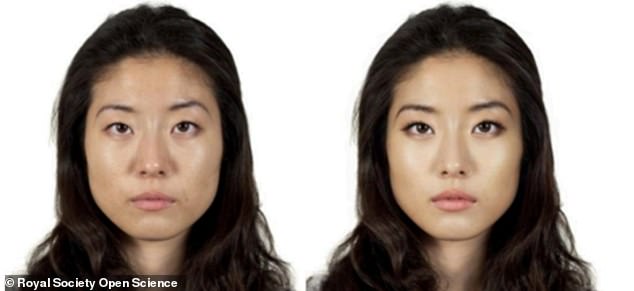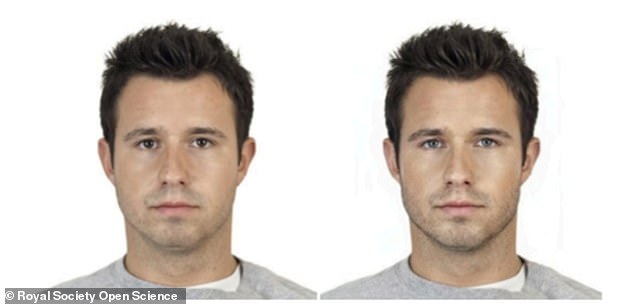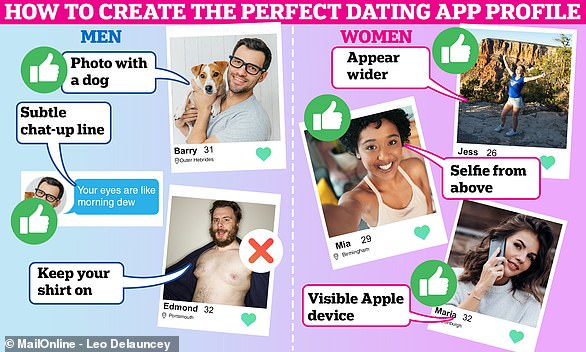Scientists reveal the common photo mistake that makes people think you’re stupid
When it comes to online dating, it can be tempting to apply a beauty filter to get yourself a date.
But be warned, ladies, because this can make you seem less intelligent, according to a study.
In an online survey of more than 2,700 participants, they were asked to rate images of 462 people.
These images consisted of original faces and their corresponding ’embellished’ versions.
None of the participants were told that some images had a beauty filter applied, and none were shown “before” and “after” photos of the same person.
In a large majority of cases – 96.1 percent – people were judged more attractive when a beauty filter was applied, and also more trustworthy.
This was regardless of gender, age or race.
However, women were seen as less intelligent by men after being ‘beautified’, the study found.
When it comes to online dating, it’s tempting to apply a beauty filter to ensure you look your best. But be warned, ladies, because this can make you seem less intelligent, according to a study

In an online survey of more than 2,700 participants, they were asked to rate images of 462 people. These images consisted of original faces (left) and their corresponding ‘beautified’ versions (right)

In a large majority of cases – 96.1 percent – people were judged more attractive when a beauty filter was applied, and also more trustworthy. This was regardless of gender, age or race
The researchers wrote in the journal Royal Society Open Science: ‘Although images of women were given higher scores on perceived attractiveness than images of men by both male and female raters, they were given lower scores on intelligence than images of men, especially after beautification .
‘This finding suggests the existence of a gender bias in the perception of intelligence.
‘Gender also appears to play an important role in the perception of related characteristics such as competence and employability.
‘These findings suggest that male raters’ judgments of attractiveness, intelligence, and trustworthiness are more sensitive to the filters compared to female raters’ judgments.’
The Ellis Alicante Foundation team said their results also support previously reported examples of challenges women face in different areas of life.
‘Given the prevalence of beauty filter use among young women – 90 percent of women aged 18 to 30 report using beauty filters before posting selfies on social media – our findings raise additional concerns about the potential negative impact.
‘Extensive use of beauty filters has already been shown to lead to anxiety and depression, lowered self-esteem, body dysmorphia, an increase in plastic surgery, feelings of inadequacy and increased pressure to conform to unrealistic beauty standards.
‘Our research adds a new dimension to the harmful effects of using beauty filters by empirically showing that women are perceived by men as less intelligent after applying the filters.’

